With the possible exception of the Baßbuffo, there is no such thing as a lyric or dramatic classification for the bass voice. The true Italian buffo, the German Spielbaß, has a somewhat lighter voice than the other basses but still must produce a considerable amount of sound as he sings the lowest voice in ensembles and more often than not over the entire orchestra. Here the four bass Fächer are presented in the two main divisions, the Spiel- and Charakterfächer and the Seriöserfach. Follow the links to both sound examples and an extensive listing of typical roles and arias.
Part one: Spiel- und Charakterfach: [ʃpi:l ʊnt ka.’ʁak.tɐ fax]
SPIELBASS/BASSBUFFO [‘ʃpi:l.bas ‘bas.’bʊf.fo] (E to f’)
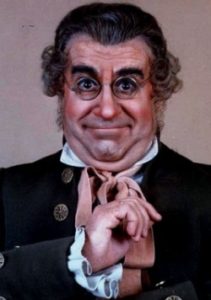
Within the category of Spielbass there is a division made considering both physical and vocal size. The lighter Spielbass or Bassbuffo, the true Italian buffo, possesses a flexible and expressive voice. He must be an excellent actor and have very good language facility. The classic roles of the Italian literature are his; Leporello in Don Giovanni, Don Bartolo in Il barbiere di Siviglia, Don Magnifico in La cenerentola, Dulcamara in L’elisir d’amore, and the title role in Don Pasquale. In the German repertoire, he sings Baculus in Der Wildschütz, Truffaldin in Ariadne aus Naxos and, if his voice has the requisite high notes, the Beckmesser in Die Meistersinger von Nürnberg.
Singers: Fernando Corena, Enzo Dara, Beno Cusche
Example: Enzo Dara in La cenerentola
SCHWERER SPIELBASS [‘ʃve:.ʁɐ ‘ʃpi:l.bas] (C to f#’)
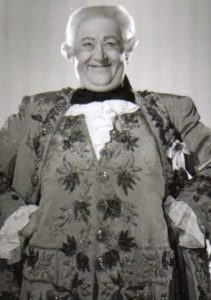
The singer who sings the repertoire of the Schwerer Spielbass must above all be large in voice and body. The true test of the heavy buffo voice are the roles of Falstaff in Die lustigen Weiber von Windsor, Osmin in Die Entführung aus dem Serail, and Baron Ochs in Der Rosenkavalier. He must possess a great comic flair for such roles as Kecal in The Bartered Bride and van Bett in Zar und Zimmermann and the ability of fine characterization in the roles of Basilio in Il barbiere di Siviglia, and Colline in La bohème. His German repertoire includes the roles of Daland in Der fliegende Holländer and Kaspar in Der Freischütz. This is a typical German Fach which very much rests on physical type and vocal power.
Singers: Alexander Kipnis, Kurt Böhme, Gottlob Frick, Karl Ritterbusch, Kurt Moll
Examples: Gottlob Frick; Kurt Böhme in Der Freischütz
Typical roles and suggested arias.
Compare the light and heavy Spielbass Fächer.
Franco Corena (Spielbass) and Alexander Kipnis (Schwerer Spielbass / Seriöserbass): Don Giovanni
Endre Koreh (Spielbass) and Martti Talvela (Schwerer Spielbass), Die Entführung aus dem Serail
CHARAKTERBASS/BASSBARITON [ka.’ʁak.tɐ.bas ‘bas.’ba.ʁi.to:n] (E to f’)
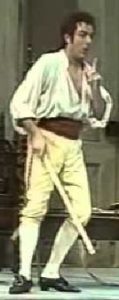
The Charakterbass in the German theater has one of the largest repertoires of all the voice categories, tends to be on the stage every night. The voice generally has a more refined, Italianate sound than the Seriöserbass and lies a bit higher. Although he can usually sing the repertoire of either the Seriöser– or Spielfach, he lacks either the physical or vocal size or the acting ability that would make his portrayal of the leading characters acceptable. Most often he is relegated to secondary roles of a supportive type: he is the friend, the father, or wise man in the opera: Zuniga in Carmen, Warlaam in Boris, Angelotti in Tosca, Don Ferrando in both Fidelio and Il trovatore the Großinquisitor in Don Carlo and the King in Aida. A few major roles way, Figaro in Le nozze di Figaro and Don Alfonso in Così fan tutte. If the voice is large enough he may also sing roles from both the Seriöser– and Schwerer Spielbass Fächer such as Daland in Der Fliegenden Holländer, Mephisto in Faust, and Hunding in Die Walküre.
Singers: José van Dam, Samuel Ramey, Ruggero Raimondi
Examples: José van Dam in Faust
SERIÖSERBASS/SCHWARZERBASS [se.ʁi.’ø:.zɐ.bas ‘ʃvaʁ.ʦɐ.bas] (C to f’)
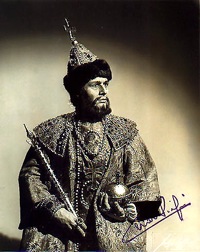
This is the Fach which includes the very deep, basso profundo, roles, such as Sarastro in Die Zauberflöte and the leading dramatic basses including Filippo in Don Carlo, Marke in Tristan und Isolde and Heinrich in Lohingrin. Like the Charakterbass Fach, it also includes many smaller roles. This Fach demands an imposing figure, a large, dark voice, a great deal of intelligence and sensitivity in acting, and the kind of personality which inspires confidence. Although included in this Fach are the great Italian bass roles, the Seriöserbass in the German theater has a darker rougher sound than his Italian counterpart.
Singers: Cesare Siepi, Feodor Chaliapin, Ezio Pinza, Boris Christoff, Nicolai Ghiaurov, Marti Talvela, Matti Salminen, Aage Haugland, Kurt Moll, Hans Sotin.
Examples: Cesare Siepi in La sonnambula and Les Huguenots
Typical roles and arias.
___________________________
Helmholz notation
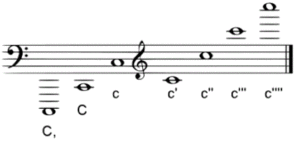
(This article is the eighth part in the series on the German Fach System and is based on information derived from Rudolf Kloiber’s “Handbuch der Oper”, 9th edition, Deutschen Taschenbuch Verlag. Read the first part of this series here.)
